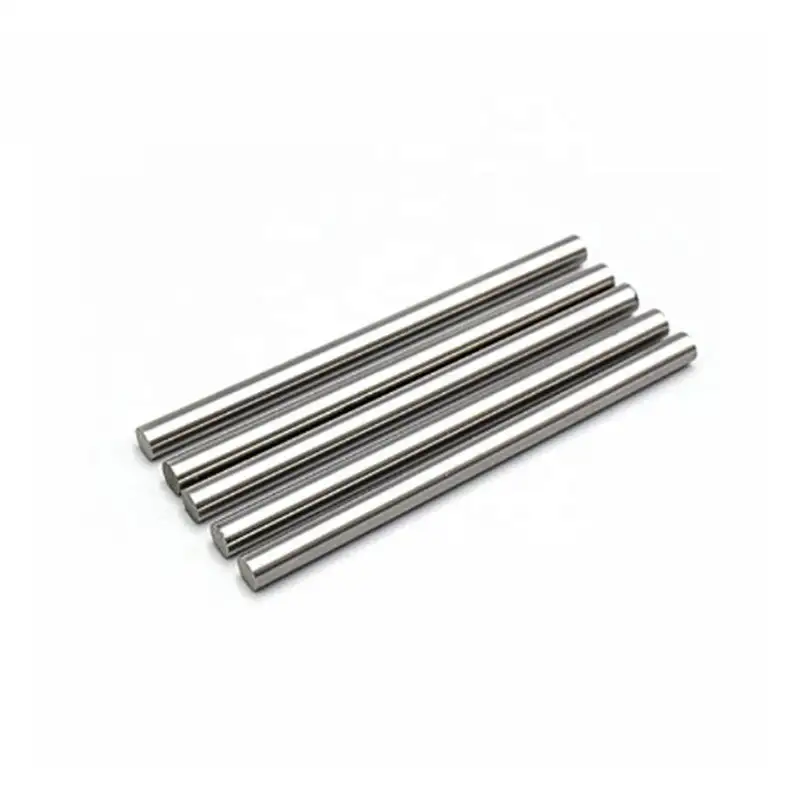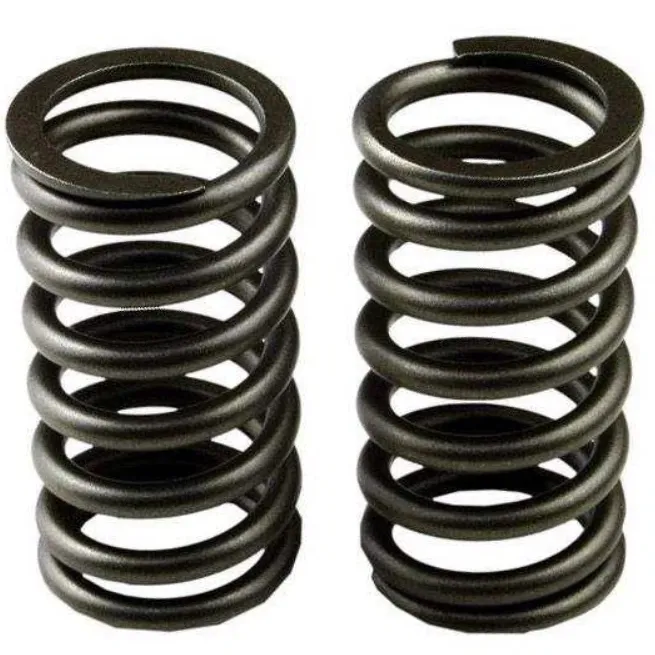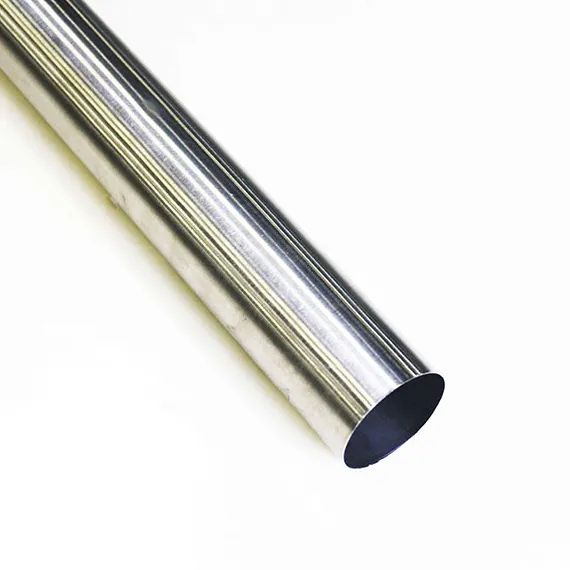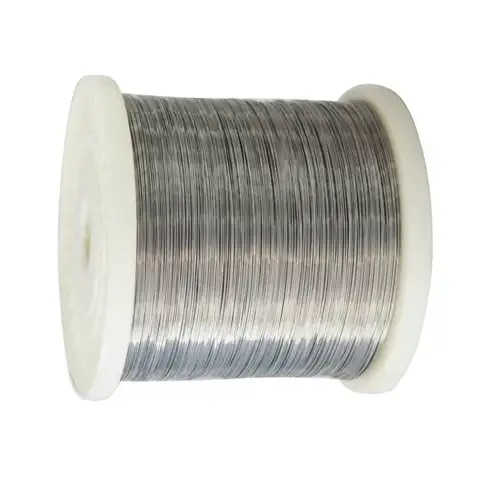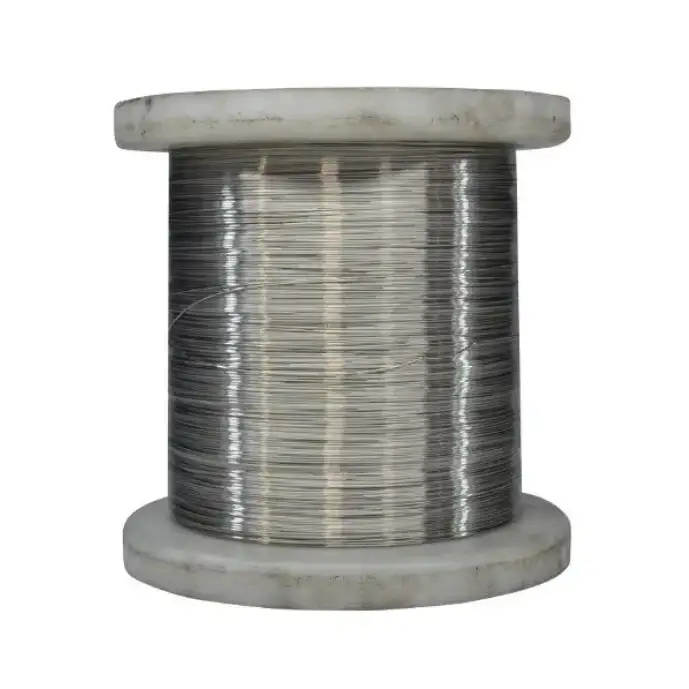Inconel 925 (UNS N09925, often sold under trade names such as Incoloy® 925 or Alloy 925) is a precipitation-hardenable nickel-iron-chromium alloy that pairs elevated strength with excellent resistance to pitting, crevice corrosion and stress-corrosion cracking in chloride and sour environments. For applications that demand both toughness and resistance in aggressive aqueous or sour gas service (valves, downhole tubulars, fasteners, pump shafts), Alloy 925 is a leading choice. MWalloys supplies Inconel 925 round and bar stock from our China production lines at 100% factory pricing with fast-stock shipping for standard diameters.
What is Inconel 925 material?
Inconel 925 is a precipitation-hardenable nickel-iron-chromium alloy, standardized under UNS N09925. It is supplied in solution-annealed and in age-hardened conditions. Designers select this alloy for components that require higher mechanical strength than classic nickel-chrome alloys while still needing robust resistance to chloride attack, pitting and sulfide stress cracking. Industry trade names include Incoloy® 925 (Special Metals / former trade) and CarTech Alloy 925; multiple mill stockists and specialty metalmakers produce bars, round stock and forgings to these chemistries.
Chemical composition
The table below summarizes widely published composition ranges for Alloy 925. These are industry ranges used for material selection and specification; exact mill certificates should be consulted for purchase lots.
| Element | Typical range (wt%) |
|---|---|
| Nickel (Ni) | 42.0 – 46.0 |
| Chromium (Cr) | 19.5 – 22.5 |
| Iron (Fe) | balance ≈ 22% |
| Molybdenum (Mo) | 2.5 – 3.5 |
| Copper (Cu) | 1.5 – 3.0 |
| Titanium (Ti) | 1.9 – 2.4 |
| Aluminum (Al) | 0.1 – 0.5 |
| Carbon (C) | ≤ 0.03 |
| Manganese (Mn) | ≤ 1.0 |
| Silicon (Si) | ≤ 0.50 |
| Phosphorus (P), Sulfur (S) | trace limits |
(Compilation based on manufacturer and material-datasheet ranges.)
Physical & mechanical properties
Below are commonly reported figures; mill certificates and spec sheets should be referenced for acceptance testing and final design.
Physical data
-
Density: ≈ 8.05 g/cm³ (≈ 8050 kg/m³).
-
Melting range: approximate onsets around ~1340–1375 °C depending on exact lot.
Representative mechanical properties (solution-annealed then aged condition typical ranges):
| Property | Typical value (aged) |
|---|---|
| Tensile strength (min) | ≈ 900–965 MPa (≈ 130–140 ksi) depending on diameter / processing |
| 0.2% Offset yield strength (min) | ≈ 700–760 MPa (≈ 100–110 ksi) |
| Elongation (in 50 mm) | ≥ 20–25% |
| Hardness (Rockwell C) | mid-teens to low-20s / depends on aging |
| Impact energy | specify per part and temp |
These numbers indicate Alloy 925 is substantially stronger after aging than many common Ni-Cr alloys used in corrosion service; that strength plus corrosion resistance is the main technical appeal.
Specifications, standards and common equivalents
UNS designation: N09925.
Common mill/ASTM standards that cover wrought forms: ASTM B805 is commonly referenced for bar/round product forms; some suppliers also supply to AMS/ASME designations for aerospace/industrial use. Industry trade names include Incoloy® 925 and Alloy 925. Equivalent material descriptions appear from multiple vendors (CarTech Alloy 925, Böhler L925). For sour-service evaluation, NACE MR0175 / ISO 15156 guidance is often used to qualify use in H₂S environments.
What is Inconel 925 used for?
-
Oil & gas downhole equipment: packers, valves, threaded tubular components, fasteners for sour wells (when NACE guidance is followed).
-
Subsea components and marine hardware: pump shafts, valve internals that must resist chloride and sulfide environments.
-
Chemical process equipment: reactor internals, heat-transfer parts, flanges and fittings where mixed oxidizing/reducing chemistries are present.
-
High-strength fasteners and springs where good corrosion resistance and higher tensile/yield strength are required.
Engineers select Alloy 925 when a balance of high strength and broad corrosion resistance is required in chloride or sour environments where standard stainless steels or non-precipitation-hardened Ni alloys would be inadequate.
Inconel 925 bar sizes, section types and weight per length
Practical table — round bar weight per metre (density 8.05 g/cm³):
| Diameter (mm) | Weight (kg/m) |
|---|---|
| 6 | 0.227608 |
| 8 | 0.404637 |
| 10 | 0.632246 |
| 12 | 0.910434 |
| 16 | 1.618549 |
| 20 | 2.528982 |
| 25 | 3.951535 |
| 30 | 5.690210 |
| 40 | 10.115928 |
| 50 | 15.806138 |
| 60 | 22.760839 |
| 80 | 40.463713 |
| 100 | 63.224552 |
Engineers can use the formula above to compute non-standard sizes. (All arithmetic derived from the density 8.05 g/cm³ and the area formula; consult mill cert for precise density.)
Heat treatment, aging and manufacturing notes
-
Solution anneal: Many suppliers deliver Alloy 925 solution-annealed. Subsequent cold work is possible, but final mechanical properties are affected by cold deformation and aging.
-
Precipitation hardening (aging): Typical aging treatments increase yield and tensile strengths. The aging cycle (time/temperature) is chosen to obtain a target strength level while controlling toughness. Supplier datasheets specify the exact thermal cycle for mill products.
-
Welding: Weld procedures should be qualified; post-weld heat treatment and filler selection depend on service and design codes. Welding may alter local precipitation and corrosion resistance; consult welding procedure specifications.
-
Machinability & forming: Alloy 925 is more challenging to machine than common stainless steels; tooling and feeds should reflect the alloy’s strength. Forming is possible in suitable annealed conditions.
Corrosion behaviour and sour-service considerations
Alloy 925 shows good resistance to chloride-induced pitting and crevice corrosion and provides improved fatigue and stress-corrosion cracking resistance compared with some alternative alloys. For sour gas and H₂S service, designers must consult NACE MR0175 / ISO 15156 guidance and relevant API standards to confirm suitability and acceptance criteria (hardness limits, heat treatment, and environmental qualifiers). Certification or testing for each service condition is a prudent engineering practice.
2025 price comparison: U.S., Europe, China
Market pricing for high-nickel specialty alloys is volatile and depends on: alloy type, product form (bar, plate), quantities, market surcharges, nickel and molybdenum metal prices, trade tariffs, and lead time. The table below presents representative price bands observed in mid-2025; use these figures for directional comparison only — get firm quotes for procurement.
Price per kilogram — representative mid-2025 ranges (approx.):
| Region | Typical range (USD/kg) | Notes / source |
|---|---|---|
| China (mill/stock, domestic suppliers) | ~ $30 – $50 / kg | Some China suppliers list prices nearer the lower range for standard bars and larger volumes. |
| United States (domestic distributors, short lead) | ~ $45 – $80 / kg | Domestic supply and service premiums push prices up. Surcharges also significant. |
| Europe (distributors & mills) | ~ $40 – $75 / kg | European market sits between domestic US and China depending on mill locality and stock. |
Important purchase notes:
-
Pricing depends strongly on minimum order, diameter/shape, and whether material is delivered solution-annealed or aged.
-
Surcharges and raw-material indexation (nickel, molybdenum) cause rapid swings — always request a dated, all-in quotation and confirm lead time.
Stock, lead times and purchasing tips from MWalloys
MWalloys maintains a selection of Inconel 925 round bars and common section shapes in China stock. Our advantages for buyers:
-
Factory direct pricing for mill-origin material — we operate direct mill relationships; quoted price is 100% factory level.
-
Fast stock delivery for standard diameters (see the weight table above for common stocked sizes).
-
Documentation: full mill certification (chemical + mechanical), heat treatment record, and traceability on request.
-
Ordering tips: specify UNS N09925, required condition (solution-annealed or aged), diameter/length tolerances, and acceptance tests (tensile / hardness / PMI). For sour service, specify NACE/ISO qualification requirements up front.
FAQs
1. Is Alloy 925 the same as Alloy 825?
No. Alloy 925 has similar corrosion resistance to Alloy 825 in many environments but includes stronger precipitation-hardening additions (Ti, Al) that allow higher strength after age treatment. Select 925 when higher strength with comparable corrosion behaviour is required.
2. What is the UNS designation for Inconel 925?
UNS N09925. Suppliers may list it as Incoloy® 925, Alloy 925 or CarTech Alloy 925.
3. Can Inconel 925 be used in sour (H₂S) environments?
Yes when properly specified and qualified to NACE MR0175 / ISO 15156 guidance and when hardness/heat treatment limits are met. Always verify with laboratory tests and service condition parameters.
4. How much does a 20 mm dia Inconel 925 bar weigh per metre?
Approximately 2.528982 kg/m (using density 8.05 g/cm³). See Section 7 formula for calculations.
5. What standards cover bar product forms?
ASTM B805 is commonly cited for wrought forms including rounds; other AMS/ASME references may apply for special uses. Confirm on the mill cert.
6. Is Alloy 925 weldable and machinable?
Weldable with qualified procedures; machining requires higher torque tooling due to strength. Specify allowances for post-weld treatment where needed.
7. Typical lead time for stocked bars from China?
For stocked diameters, MWalloys can often ship within standard export lead times (varies by port and customs); for custom forged or large diameters, lead times extend to weeks/months. Request a dated quote. (Operational note from MWalloys.)
8. Does MWalloys supply mill test reports (MTR)?
Yes, chemical and mechanical certificates are provided for each heat lot on request.
9. Is there a cost premium for pre-aged bars?
Yes, bars supplied in an aged (precipitation-hardened) condition usually command higher prices due to additional processing and testing. Discuss requirements with the mill.
10. Where does Alloy 925 perform poorly?
Very strong oxidizing high-temperature scaling service is better handled by other nickel alloys formulated for oxidation resistance. Always match the alloy to environmental chemistry and temperature.

